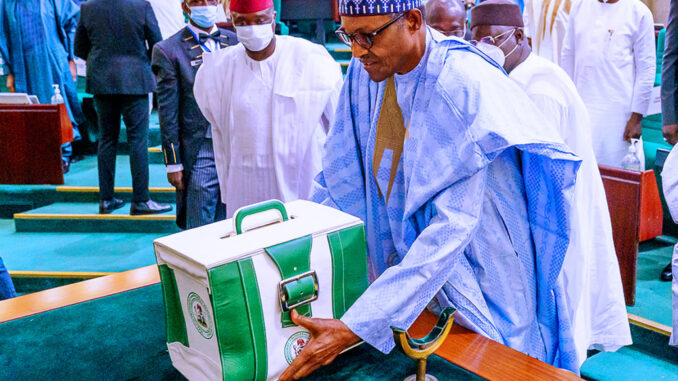
The desire of the Federal Government to support the financing of the 2021 budget through sale of public assets is a questionable policy with potential of endangering the stability of the economy. It is not surprising that many individuals and organisations, including the organised labour and the Socio-Economic Rights and Accountability Project (SERAP), have already risen in opposition, condemning it as counterproductive. SERAP has even called on the leadership of the National Assembly to stop the President Muhammadu Buhari administration from selling public assets to fund the 2021 budget.
The move is like a journey that leads nowhere because, as some stakeholders have rightly queried, if government sells assets to fund 2021 budget, how will they fund 2022, 2023 and other future budgets? Government needs to take a second look at this plan and consider jettisoning it altogether. It should look for other viable ways of funding the 2021 budget.
For the 2020 fiscal year and the consideration of the idea of the disposal of public assets, reports then indicated that the Bureau for Public Enterprises (BPE) was reviewing its 2020 Privatisation Work Plan to ascertain what assets to put on sale to raise money in supporting government efforts to finance the 2020 budget deficit of N5.37 trillion. From the BPE work plan, about N266 billion was scheduled to be realised as revenue from sale and commercialisation of public assets in 2020. In effect, this revenue was scheduled to be consumed that year and not to be ploughed into supporting new investments. That was not considered a viable way forward for a growing economy.
On the other hand, those in support of the sale have cautioned that if the move can add any value to the growth of the economy, the sale should be done publicly through the capital market. The hope is that the move would broaden the ownership of these assets and guarantee a minimal incidence of corruption and enhanced transparency in the process, which would benefit the economy more than otherwise. But the benefits do not appear to go farther than that. The entire project may end up being counterproductive, as the danger appears to exceed the benefits. More important, government can hardly guarantee transparency in the proposed sale.
It is unfortunate that government has turned deaf ears to the persistent clarion call by public-spirited Nigerians for it to drastically cut on the cost of governance, particularly the perks and allowances of political office holders. The numerous allowances for sundry issues including; constituency, wardrobe, recess, and entertainment allowances, among others, usually paid to political office holders, across the arms of government, have become very sickening.
In as much as a blanket condemnation of sale of public assets could be avoided, there is the need to interrogate all the sales previously done. Were these transactions corruption free? Of what benefits have these previous sales been to the generality of Nigerians? If not, what would the sellers do differently now? Experience has shown that national heirlooms have been handed over to a few cronies in the past! Is this another round?
The plan to sell some of its assets to finance the budget can be termed as a case of “penny wise, pound foolish”. Notably, the assets being scheduled for disposal were products of past national savings set aside to enhance the country’s gross capital formation and productivity. With the advent of COVID-19, the downturn in the global oil market and the consequent financial challenges, it is curious of Nigeria to go for more borrowings and sale of existing assets, instead of cutting its coat according to its cloth by reducing unnecessary overheads. This is a case of selling one’s long-term investments to finance consumption, which are largely conspicuous. It is difficult to understand how such a plan can help the growth of the Nigerian economy and build trust among the citizenry. In fact, the current recovery of the global oil market with prices exceeding $50 per barrel of crude oil appears to be an incentive to discourage such a move in the present circumstance.
Why should the presidency not drastically cut its overheads to win the confidence of the people? If anything should be disposed of at this moment, it should be the Presidential Jets in the Villa, which have constituted a serious economic drain on the country’s scarce resources, particularly in this period of economic and health emergencies. The abuse in the use of the Presidential Jets was made so obvious when President Buhari’s daughter recently used one of the Jets for her private outings.
In the midst of widespread misery and untold poverty of the majority, what leaders worthy of that description do is to be in sync with the led, substantively and symbolically. Living a sumptuous lifestyle when the citizens’ lives are under threat is a complete repudiation of the spirit of service, which should guide leadership. Not only can the country not afford the luxury the leaders are claiming, it is irresponsible to live it, even if available, in these present circumstances. This is not only about jets but every unnecessary material benefits to all public offices. Government should heed the voice of reason and do things right. The 2021 budget can be successfully implemented without selling public assets except where it is absolutely necessary.
END

Be the first to comment